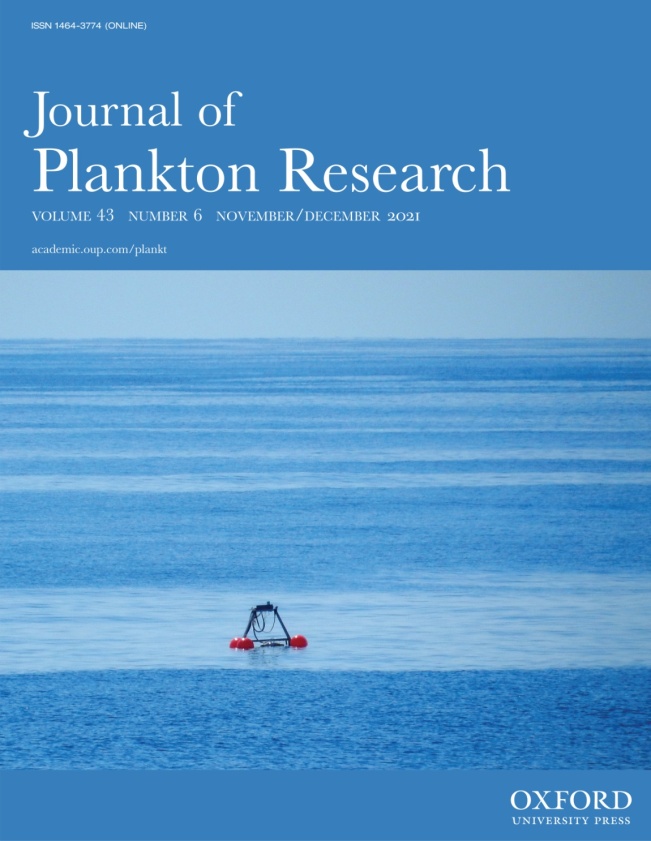The Journal of Plankton Research (Oxford University Press, England) has published a review by an international working group. The review explains two new ways in which ocean-surface microbes may be regulating the climate of Planet Earth.
It is well known that Planet Earth is warming, and that 70% of the planet's surface is covered by ocean. The International Panel on Climate Change (IPCC) and other bodies are striving to better model the inputs that regulate climate change so as to reduce harmful change to the planet. It is already known that since the Industrial Revolution, the oceans have taken up about half of the anthropogenic carbon dioxide (CO2), most of which are fixed by microbial plants (plankton) into solid organic matter, which will sink and be buried on the seabed, so that it is removed from exchanging back to the atmosphere. Some of the CO2, unfortunately, remains dissolved in the ocean, making it more acid.
In their review, the working group, called RheFFFO WG (the International Working Group for Rheology, micro- and nano-Fluidics, bioFouling and Foam in the Oceans and other natural waters), have brought together published work in different scientific fields that normally do not communicate with each other, particularly Oceanography-Oceanology and Rheology (the study of deformation, viscosity elasticity and sticking in complex materials such as mucus, glues, gels and foams). The RheFFFO review has drawn on publications in these different scientific fields to show that viscous and sticky organic matter secreted by microscopic planktonic plants is slowing, and thus regulating, the diffusion of gases, including CO2, through the sea-air interface. As well, it is increasing the stability of ocean foam, such as whitecaps generated when ocean waves overflow and burst. Sea foam is white, and reflects about 50% of incident solar light and heat back into space, while the non-foam sea surface reflects only about 5%. Therefore more stable foam reduces heating of the ocean. The reduction of gas exchange, however, may have several more complex effects on climate. Showing that ocean microbial organic matter may regulate climate by these two mechanisms, reduction of sea-atmosphere exchange and increase in foam coverage, is important and new. Our publication suggests that these mechanisms need to be researched more and incorporated into climate models such as those of the IPCC.
The review was written by 17 authors, all of whom are participants of RheFFFO WG. They include 7 with affiliations in China. Two are IOCAS staff members, and two scientists who were invited by IOCAS have now returned to their respective countries, France and India, but both retain strong ties with IOCAS. RheFFFO WG includes three further Chinese scientists, at the Ocean University of China, Qingdao, the University of Geosciences, Wuhan and Tongji University, Shanghai. Affiliations of the other authors include 7 more counties, France, Germany, India, Spain, Slovenia, the USA and Vietnam.

Fig 1. Coastal sea foam stabilized by plankton-secreted organic matter, Menorca, Spain (Photo: Elisa Berdalet)

Fig 2. Cover image in Journal of Plankton Research: Dissolved organic matter (DOM), originating mainly from planktonic microbes, partly concentrates in the sea-surface microlayer, where it reduces diffusion of gases, such as CO2. In calm weather, lateral variation in DOM distribution manifests as slicks, pictured here on an ocean graphic cruise led by Prof. Dr. Oliver Wurl in the open ocean of the Tropical West Pacific. Also in the slick is a small drifting buoy, the Sniffle, which is measuring air-sea gas fluxes. (Photo: Dr. Nur Ili Hamizah Mustaffa, Universiti Kebangsaan Malaysia)
J. Plankton Res. (2021) 43(6): 801–821. First published online October 12, 2021. Doi: 10.1093/plankt/fbab067.
(Editor: ZHANG Yiyi)
|
|

Address: 7 Nanhai Road, Qingdao, Shandong 266071, China
Tel: 86-532-82898902 Fax: 86-532-82898612 E-mail: iocas@qdio.ac.cn


